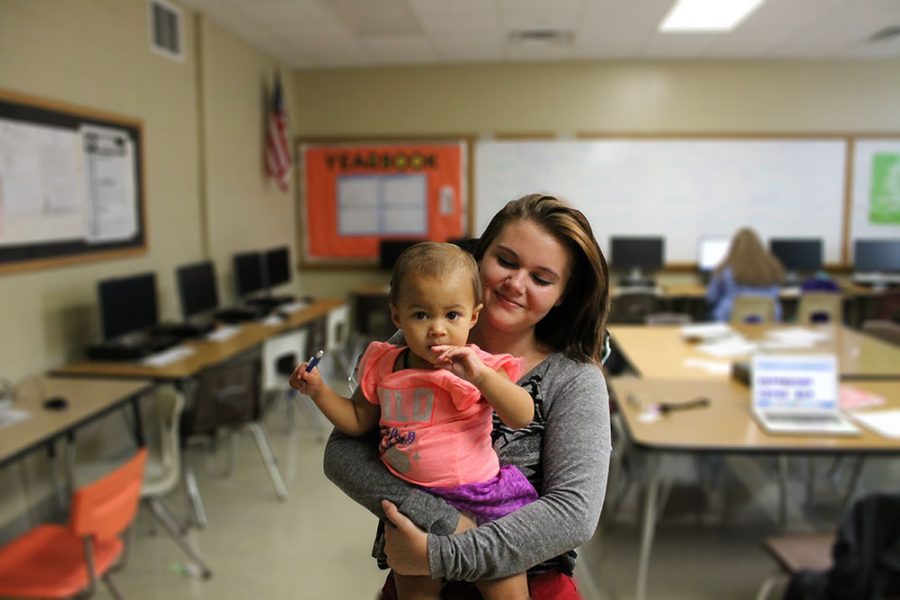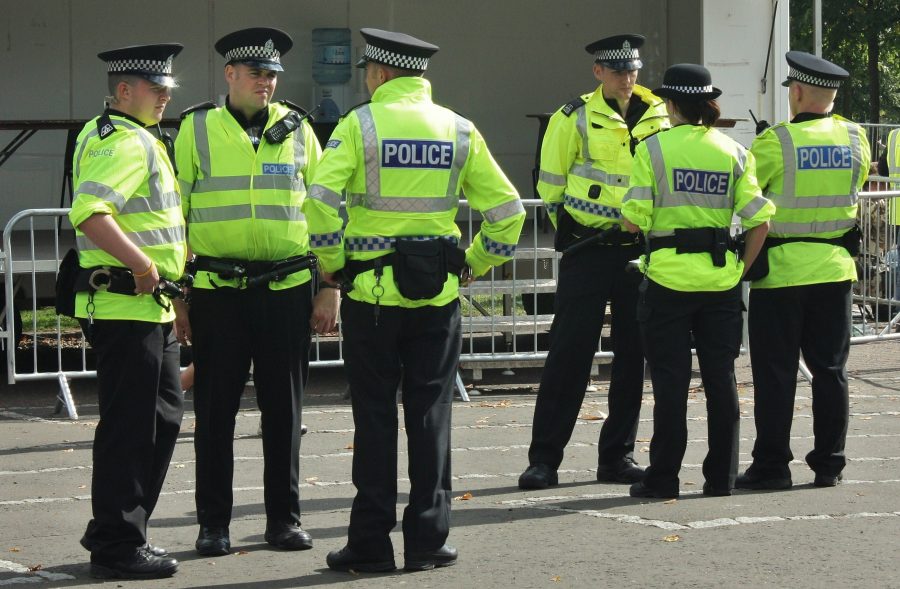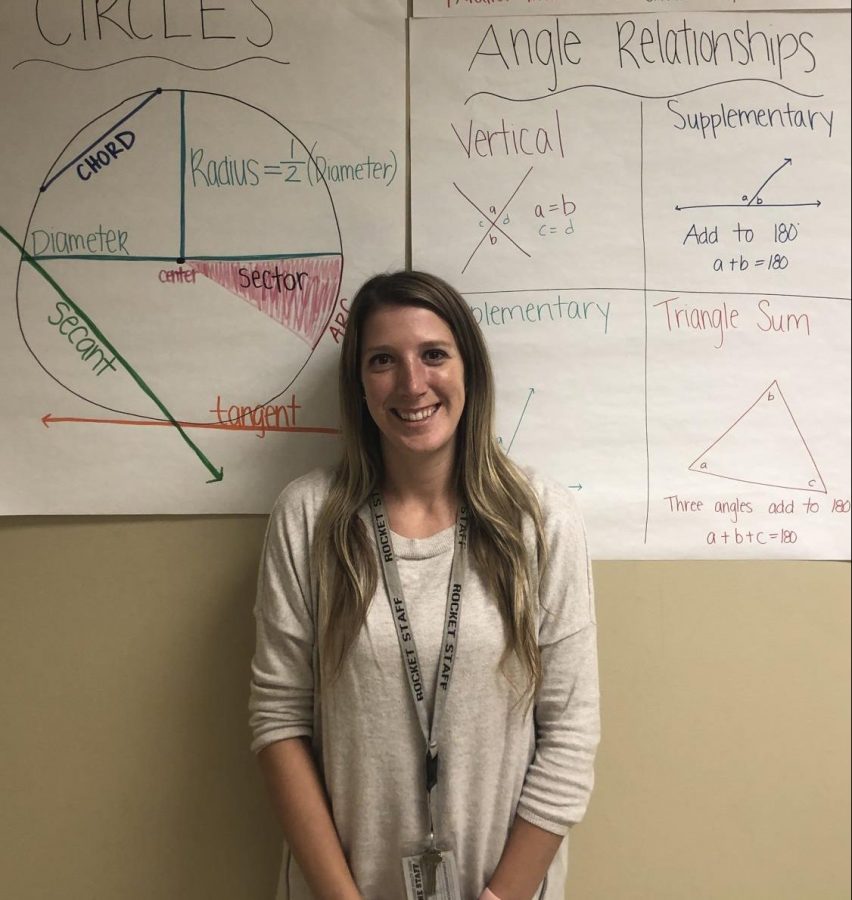Teen pregnancies in the United States are more likely than others to be unintended. Most unintended pregnancies happen as a result of lack of knowledge about sexuality or contraceptives, lack of planning, inexperience using contraceptives, or difficulty getting contraceptives.
U.S. teen pregnancy and birth rates have declined dramatically over the past few decades and are now at historic lows. Yet, the U.S. rates of teen pregnancy are far higher than in other comparable countries. In the year 2014, a total of 249,067 babies were born to women aged 15-19 years of age, a drop of 9% from 2013 according to The National Campaign Data on unplanned pregnancy.
A large number these women do not have help or support while going through their pregnancy. Although like some women, Emily Root who is a Senior at Northeast High School with her child Peighton, has support from her sister Ashley and Peighton’s father, but also The Lincoln Pregnancy Center. ”I went there to get my birth control and they told me I couldn’t get it because I was pregnant,” Emily states, ”If I didn’t go to the Center, I wouldn’t have known I was pregnant as soon as I did. I would’ve found out later.” Finding out she was pregnant early allowed her to consider her options. She considered putting her up for adoption, but she knew she couldn’t give up because she wanted to have memories with her child.
The Pregnancy Center has a variety of free services and programs to meet client needs; anything from birthing classes and counseling to pregnancy tests and birth control. When visiting the Center, you will receive one-on-one confidential care from a highly trained client educators. If at the Center a woman discovers she is pregnant, they will provide accurate pregnancy dating and information through a free ultrasound. As they do not perform abortions or refer for them, but they do give information about abortion and what procedures are available.
While Emily was pregnant, she had a 50% chance of having a preterm birth because she was having contractions very early in her pregnancy. Preterm birth is when babies are born too early, may not be fully developed and can be born with serious health problems. Babies who are born before 37 weeks are at the greatest risk of health problems, according to The College of Obstetricians and Gynaecologists FAQ. Some health problems can last a lifetime such as cerebral palsy which is an umbrella term that refers to a group of disorders that can affect someone’s ability to move their muscles. Learning disabilities may also occur later in childhood or even adulthood.
Teenage mothers between the ages of 15 to 19 are almost three times as likely to be diagnosed with a major mental illness, such as bipolar disorder, depression and schizophrenia, according to a study of more than 70,000 teen girls in Ontario, Canada done by SELENI. Teenage mothers are also associated with increased rates of alcohol and substance abuse and lower educational level. Half of these women do not get the support that they need, as their mental health is not as much of a concern as physical health for care providers.
The College of Obstetricians and Gynaecologists FAQ reads that a preterm birth is a huge concern for teens who are pregnant. A baby born to a teenage mother is at higher risk than a baby born to an older mother for premature birth. When pregnant, teenage mothers are less likely to gain sufficient weight during their pregnancy, leading to low birthweight. Babies who are born with a low birthweight are more likely to have organs that are not fully developed, such as bleeding in the brain, respiratory distress syndrome, and intestinal problems. If a teen woman is sexually active, she could take medication such as birth control to avoid getting pregnant but birth control does not protect against STD’s. For additional information see the school nurse, speak to your parents or family physician.
















